Diversity vs Variety
My god but this topic has become political... but before all the hullabaloo there was still Tom Sawyer and Huckleberry Fin, still Gimly and Frodo, and still Aragorn and Arwen. As you can see, we still had fictional friends across culture and race and even interracial marriage long before everyone went crazy. Before the left wing went nuts and decided reality is for losers and the right wing responded with a collective "screw you you're not the only ones who can be delusional!", diversity always existed in fiction. Whether you're feminist or egalitarian or whatever other words that are supposed to be synonyms, if you want to write good characters, they need to be diverse. You need to have variety.
Unfortunately, when I say "diverse" too many people have lost all ability to understand the real meaning of that word outside of politics. This is going to be a politically charged chapter because-honestly, how could it not be? I'm about to say things that are highly controversial like taking shows from the 50s and saying they have more variety in their casts than shows made in the 2010s. I'm going to say a white man and a black woman are not substantially different based on those traits alone. I'm going to say two white men can have less in common than a black man and a white woman. If any of this triggers you, screw off. (If you want to have a reasonable discussion, fine, have a seat. Understand, I'm not likely to agree that it's okay to ban abused people possibly fearing for the lives of themselves and their children from shelters because they happen to be men no matter how many buzz words you say. I'm also not likely to think it reasonable to ban someone from your local McDonald's because they're black, no matter how many times you say "purity". Yes, I've thought long and hard about these issues and there are a number of ideas that I believe can go to hell.) If however you can listen to people who may have a different opinion than yourself and walk away having learned something, stick around, you could learn something.
There is a distinct difference between what the political left has decided to label "diversity" and true diversity. To avoid confusion, I am thus going to treat the words "diversity" and "variety" as if they have different definitions. Diversity is going to be used as the political word, variety is going to just mean having differences.
Any story that does not have variety in its cast is going to be a class A snooze fest, that's just how it is. Even a battle with inner demons needs to have variety, meaning a person will have to have variety in himself. (If you just got triggered by me saying "himself" instead of"herself" or something gender neutral, now is the time to leave.) That's right, I pretty much just implied that a woman arguing with her own thoughts can be a situation with variety. (If me saying"woman" bothered you just there, now is the time to leave.)
There are three levels of variety I would like to look at. First level is superficial and nine times out of ten, this is what people mean when they talk about "diversity". The second level is physical variety, body types can tell stories all by themselves if you know what you're doing and they can create much more memorable characters.The final and most important level is personality, which includes characters having different opinions and political backgrounds.
Diversity:
Superficial variety or "diversity", is when characters have different skin color, genders or body types, but these differences change virtually nothing about how they think or their visual appeal.
Here is an image that is an example of diversity:

These are the people behind Star Wars The Force Awakens, individuals who have mostly the same political beliefs and all of them are considered passable if not drop dead gorgeous. Yes, I am saying there is little to no real variety in this picture.
Here is an image of real variety:
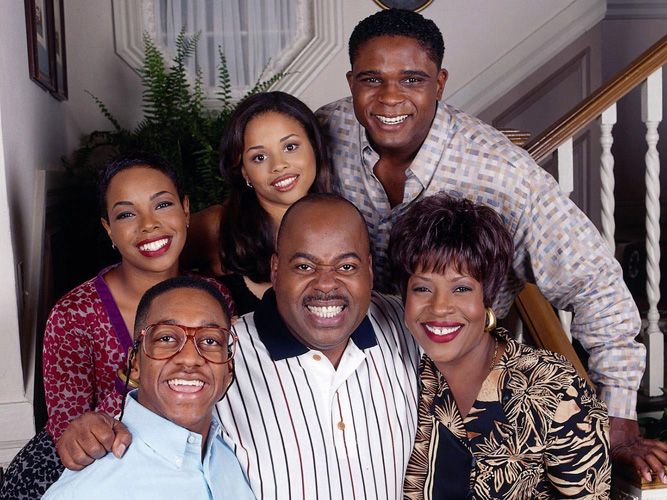
This is the cast of the old nine season long "Family Matters". It was a series about a suburban black family and their clumsy neighbor, who is also black. That's right, every single person in this image is of the same exact race, but in the show all of these people think differently and their level of physical appeal varies depending on your personal preferences. Behold actual variety, people who are fundamentally different on nearly every level, save for race and for most of them, family line. It's a ton more interesting even on its surface. Family Matters is considered by many to be a poorly made show (nine seasons is evidence something did poorly... if you say so) but I would much rather sit down and watch it than a series based on the interactions of the people who wrote and acted in the Force Awakens, simply because I have no interest in watching a dull yet attractive echo chamber.
If you do not have a cast that varies in terms of attractiveness or general body type, and in terms of how they think and act, you do not have variety. It is possible all of your characters are attractive for a reason- perhaps your story is meant to be a commentary on society's obsession with "beautiful people", but still, understand you lack a level of variety and that will likely make your story somewhat dull. It is possible that will be an amazing commentary, but I wager you will lose audience if they realize everyone essentially looks the same. (At the very least, most people will be hard pressed to remember the faces of any of your characters for an extended period of time.)
Yes, it is possible to make your characters have so much variety that they can barely get along and make a coherent story, still that train wreck would probably be more interesting than a show that is a parade of fifteen people of different racial groups, who are all attractive and all think virtually the same.
I will say it, so you can all either get triggered, or have the point driven home. No matter what you think in terms of politics, to making an interesting story, diversity is meaningless, variety is key.
Physical Variety:
Behold, Hollywood's modern sad excuse for variety. According to them, these are "diverse" body types:
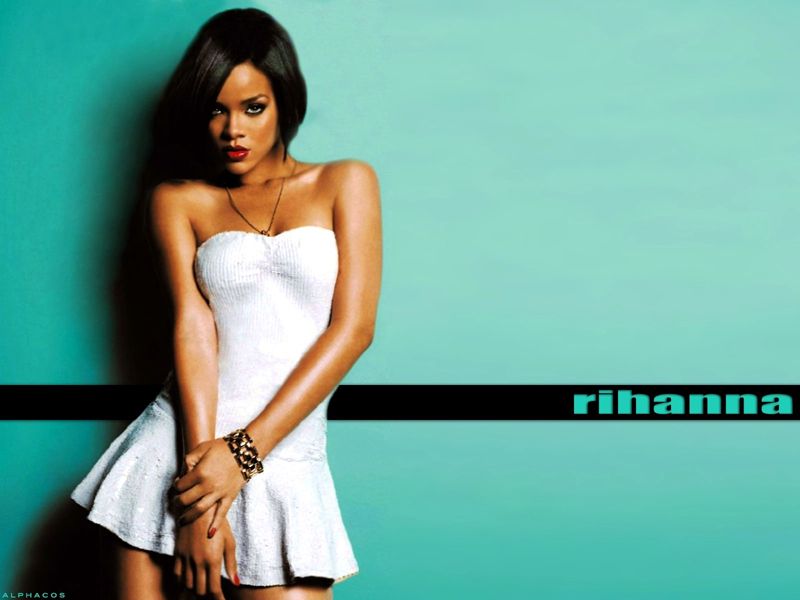
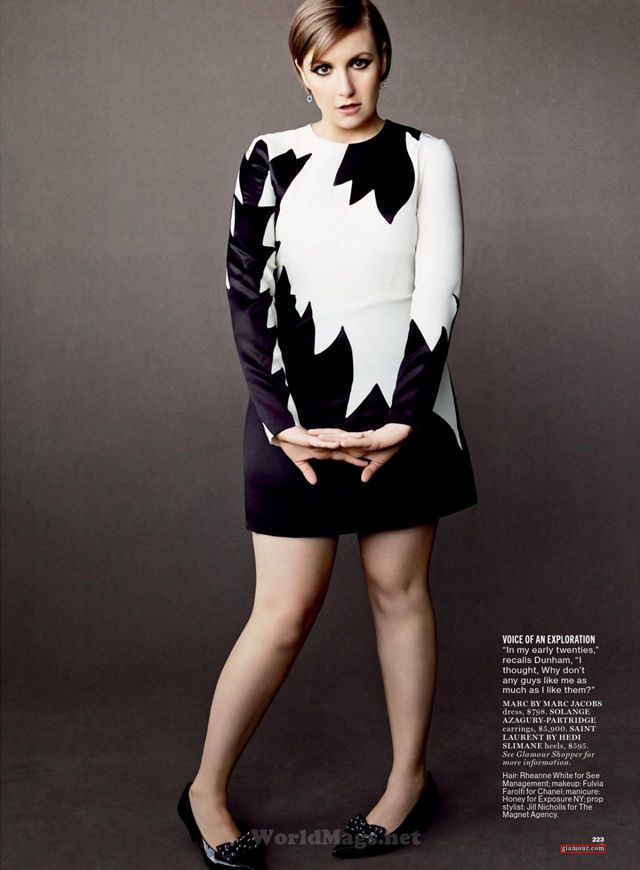
According to the fifties, this would be variety:
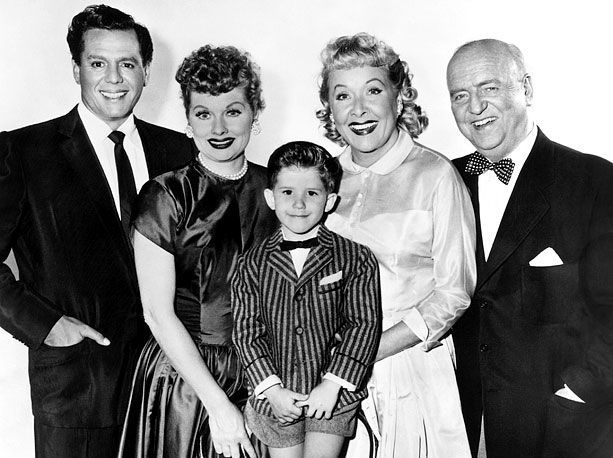
Apparently "progress" means variety is kicked to the curb.
Let me clarify, if the only physical difference between your characters is a weight difference barely anyone would notice in real life, go back to the drawing board. Age, size, weight, hair color, presence or absence of hair, frame, it all counts and the more differences the more interesting the visual dynamic. No, I'm not saying a story about an overwheight black man in his fifties and his white skinny teenage female friend will automatically be good, but... seriously, say that to yourself, you're not interested in how that could happen? I sure would be.
Body type can and does suggest history. A skinny man with perfect hair likely has a different history than a balding overweight man. The later could just be younger, but it's also very possible that one takes better care of himself, or maybe one has had battles with disease. When characters have different bodies, they likely have different lives.
Physical differences do not have to be extreme, in fact too much focus on that could make your story unintentionally hilarious. However, difference is a way of making people remember the face of your character, especially if they are a departure from your series norm. As an example, remember that picture above of the cast of Family Matters? Describe the features of the people who are not the old woman, the fat man and the obvious nerd without scrolling up.
Here:
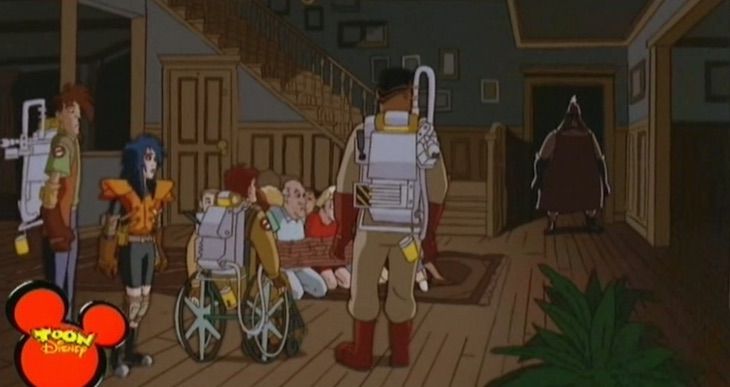
Yes, that is an image of Extreme Ghostbusters, a series that could easily be accused of trying too hard. But one thing you will not forget, is what the characters look like. And yes, if you watch the series, their bodies, beyond just the guy in a wheel chair, really do match their histories. The only difference that is generally not determined somehow by their background is sex/race. That being said, race isn't determined by background, but skin tone can be. Notice the above image again. Going on skin tone, who's the goth?
The body of a character can help tell or imply a story. This story can be part of your story proper, or one that your audience imagines. If you have a special forces agent who is somehow overweight, audience members may even be inclined to figure out a story for him regardless of its presence or absence, just because its not what they expect.
Yes, I am saying to make characters different for the sake of it, but make those differences substantive. Differences that would actually change how they interact with the world. Even if both are visually appealing, a twenty year old woman and a seventy year old woman likely have profoundly different lives and just based on their ages what is considered appealing also is very different.
Remember, body tells a story and more differences equals more memorability.
That being said, one thing to keep in mind. Variety is a tool. A hammer can't be used on everything or excessively, same with variety. If your character's profoundly different body doesn't effect the plot, in a written story your audience is likely to forget much of it in about two pages. Conversely if a character in your story is fat and you keep pausing the action to talk about this fact, that's lame. Psychical variety is a tool, use it wisely. Think about the effect body type has on your plot. If not much at all, that's probably fine to a degree, but you might think about refining things a bit. If your characters are so clearly physically unqualified for your scenario they should all be dead by the end of act one, maybe rethink your casting. It's all a matter of degrees and what story your trying to tell.
Personal Variety/Individuality:
As many of you are thinking, yes, it is absolutely possible to have an amazing and memorable cast who all have similar features, if their personalities are sufficiently different. Personality dwarfs the physical in importance ten times over. In Family Matters, the real differences between Eddie and Steve were personality, not body type. One was rather dumb, the other was a genius, one was self centered, the other's whole world was centered on other people, one had no problem getting the approval of others and so thought little of it, the other had extreme problems and so his life revolved around it. These differences will be better remembered than physical ones because they are far more profound.
So, to anyone about to ask, yes, having a cast that is very similar in appearance is okay as long as you have variety in personality. Characters similar in build is forgivable, too similar in personality and your book will likely be DOA.
Difference in personality means what most writers are afraid it means. It means characters make different decisions and it DEFINITELY mean they make decisions you personally disagree with. If you're uptight, it's a good idea to write someone laid back. If you're atheist, try your hand at writing a christian and vice versa.
I'll say this, when watching the old Star Trek shows, one thing was incredibly boring. Everyone had the same basic religious and political outlook. Well, save for Quark in Deep Space Nine. Fans of that show will tell you they completely forgot about that character- no, no they did not. In fact, Quark became more popular than the writers wanted, not because he said or did anything profound, but just because he had a substantially different way of looking at the world. He was a capitalist in a sea of socialists. He was motivated by profit when everyone else was motivated by intangible platitudes that when faced with him, often were exposed for the empty rhetoric they were. Quark was rarely a hero, often an antagonist and often a side character and yet still could never avoid having a profound impact on the plot simply because he didn't think the same way as everyone else.
Now, I have to call out what many people are thinking of doing. "I have all kinds of variety in my story and I definitely write characters I disagree with. See? All the bad guys are republicans!" **Repeatedly smacks head.**
Avoid the cardinal sin of alignment. Never allow all of your good guys to have the same beliefs, even if they're all christian, make them have different attitudes about and approaches to the world. Better yet, don't make them all Christians. Never allow all of your bad guys to have the same beliefs either.
In the 1990s there was a series call Beast Wars. The break away character in that series was called Dinobot. The good guy characters were called Maximals, most of them having strong ideals and aversions to violence, having spent their whole lives as Maximals. However Dinobot spent his life as one of their enemies, a Predacon. He switched sides, but continued to have a love of combat going so far as to have a strong sense of honor in combat that occasionally handicapped him. His life revolved around combat and many times he let it be know, he was willing to fight for peace, but he had no idea how he would fit in a world of it. His story was so much more interesting than the other characters because it challenged the norm and made people question what it meant to be "good" or "evil". Can you be "good" and love violence? However, if you fight the wrong way, are you technically "evil"? Did he have any points with his philosophies?
Bonus-Social Class:
There is one difference that many writers have used as a tool that is technically not part of either personality or physical appearance. It can be as profound or superficial as either one. Social class. A poor person has concerns your typical rich person has no idea about and conversely, only existing on a certain level will allow you to understand what it means to fall. However, rich or poor, the strength of your convictions can be just as profound or just as superficial.
Some people choose to completely ignore class in their stories, simply making their cast "middle class" and moving on. This is not wrong per say, I do it myself sometimes and I'm completely unashamed. Still, some of the most profound stories in history are told about character interactions across social class. Physical differences can be ignored, but being poor, depending on just how poor... you can overlook someone being fat, but if they're poor enough, they can be facing starvation and have no access to services even a middle class person takes for granted. Don't scoff at the idea of having varying social classes in your story, just remember, they're not like other differences.
To summarize-
Variety equals memorability and excitement, where "diversity" does virtually nothing in a story. If your characters are not substantively different, they won't have as much impact as you probably hope. Physical differences increase the chances a character's appearance will be remembered, plus they can tell or just imply a story all by themselves. Personality differences are far more meaningful than physical differences, and those mean political and religious beliefs. Never make everyone of a certain belief system have the same alignment, that's boring. Finally, class differences can have a profound effect on your story, though their absence isn't as detrimental. Remember, class differences can be both profound and meaningless. Class is a category all it's own.
...
Fine I'll say it. On my own works. If you have a problem with the fact that my lead female character who has incredible power, still demonstrates extreme need for the males in her life that she would clearly be completely broken without and is demonstrably able to be over powered by some male characters, and you wanna call me sexist- fine, I'm sexist. Now what? Beyond that pathetic buzz word what do you even have? I can say you ARE the monster you declare me to be, but honestly I hardly see you as worth the time if you lack the self reflection to already know that.
If you have a problem with Jessica having power at all, so what? It's a freaking mutant power in a scifi novel. If you've reached the age of 30 and can't learn from strong female characters you have a problem I don't know how to fix.
In summary, if your beliefs compel you to think of men as little more than dumb over privileged violence machines that no woman could ever possibly need, I think your beliefs are dumb and I don't apologize for that. If you think of women as little more than baby makers, then I think your beliefs are also dumb and again, no apology. If I offended you because you hold these or similar beliefs I count that as an accomplishment.
Bạn đang đọc truyện trên: AzTruyen.Top